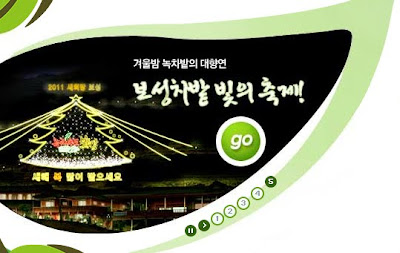Kang Shin-who has written a pair of articles in the
Korea Times about
a private school in Wanju county that has imported an Indian English teacher, the first of his kind:
[A] small private school in North Jeolla Province has challenged this prejudice by inviting the first-ever Indian English teacher here last September.
Wanju High School became the destination of the teacher, Abby Thomas, who made English education history in Korea. Although some cautiously raised concerns that it may be difficult to understand an Indian English accent, the school students, parents and other fellow teachers responded positively to the Indian teacher.
“I cannot tell much difference between Thomas and other Westerners from whom I learned English when I was in middle school,” said Yang Gang-yeal, a second grader at the school.
In case of Na Eun-ha, another student, the Indian teacher’s English is easier to understand, compared to other foreign teachers she has experienced. “Thomas is very friendly and I really enjoy the class,” she said. “I can also learn Indian culture and traditions from him.”
The North Jeolla Province Office of Education has so far recruited two Indian teachers including Thomas. Another teacher Robins Mathew is working at an English experience center in the province. Lee Chae-chong, a supervisor dealing with English teacher recruitment at the education office, said, “Their English is understandable like that of South Africa. We plan to recruit more teachers from India, depending on responses from students and parents.”
The article says Thomas is paid 300,000 won less per month than a native speaker English teacher, and closes with:
It’s true that some native English teachers are not so serious about their classes and look down on Korean teachers. But our English teacher is very devoted to his classes,” said Yang In-sun, one of Wanju High School’s English teachers. “He also understands Asian values very well.”
Though some Korean co-teachers and
academics do hold negative opinions of native speaker English teachers, as
Gusts of Popular Feeling reminds us, and as many readers already know,
Kang has a long history fabricating quotations that belittle native speaker English teachers, and given the bias and the translation back into English, it's unclear what exactly was said.
It's worth reiterating, though, that when the effectiveness of native speaker English teachers is criticized, that they have been practically set up to fail, with no support given them, no
thought or planning toward their implementation, and, for most of their history, no interest in their
qualifications or personal development. It's likewise hard to draw conclusions about the effectiveness and adaptability of Indian English teachers in South Korea when Thomas is the first: his maturity and apparent success could owe as much to his age, his teaching experience, or his personality than to his cultural upbringing, and might encourage authorities to actively recruit older, experienced, credentialed teachers, rather than continuing
budgeting for young, cheap, untraveled ones and placing the blame on the foreign imports.
Also on the 10th Kang wrote a short
profile about Thomas and his classroom manner.
Thomas said that Indian teachers use only positive words because of their belief and tradition.
“We don’t use ‘shut up,’ and many children in our country might not understand it. We say ‘Be silent’ instead of ‘Don’t make noise.’ ‘Come on time,’ instead of ‘Don’t be late.’”
“In India, no people are swearing. It is because we believe if we say negative words, we create negative energy. Which energy teachers spread in the school classes is very important,” he added.
The 53-year-old teacher said, “I am older than other teachers and treat students as my daughter and my son. Loving students is the most important qualification for teachers.”
Asked about his opinion about Korean English education, he said Koreans should not fear mistakes.
“I say to students, ‘Make a mistake and another mistake.’ Don’t try to speak perfect English, that’s the way to learn English,” said Thomas, who came here 10 years ago.
In spite of the veiled commentary by Kang in the articles, it's encouraging to see this Indian teacher succeeding in spite of discrimination against not only non-native accents but against darker skin and those from areas considered less-developed than South Korea. The
서울신문 has
a recent article about 토마스 애비 as well, along with a
short video report. I've written about South Korea's plan to import Indian English teachers a few times before, most recently in June when we learned
English Program in Korea [EPIK] was recruiting 12 Indians for domestic public schools.







































